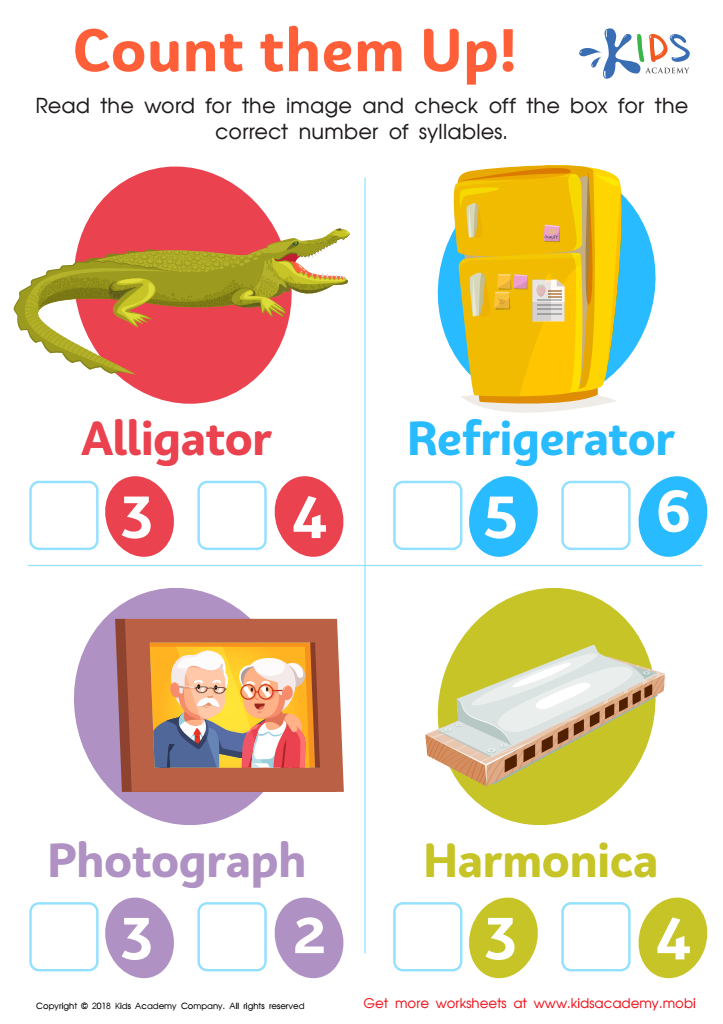Counting practice Normal Reading Worksheets for Ages 7-9
3 filtered results
-
From - To
Boost your child's mathematical skills with our Counting Practice Normal Reading Worksheets for ages 7-9! These educational resources, thoughtfully designed by experts, combine engaging reading activities with essential counting exercises. Perfect for classroom settings or at-home reinforcement, our worksheets help young learners develop accuracy and confidence in counting from 1 to 100. Packed with vibrant illustrations and interactive components, each worksheet ensures fun, active learning that can keep children motivated. Enhance your child’s ability to recognize patterns, improve number sequencing, and practice basic arithmetic—all facilitating a seamless blend of literacy and numeracy development. Explore the delight of learning today!


Fish Worksheet


The Dog and His Bone Worksheet


Count Them Up Worksheet
Counting practice and normal reading are foundational skills essential for students ages 7-9, which parents and teachers should prioritize to ensure well-rounded development.
Firstly, counting practice is crucial because it forms the basis of numeracy skills. At this age, children should progress from basic counting to understanding more complex mathematical concepts such as addition, subtraction, and place value. Consistent practice helps develop number sense, which is key for solving everyday problems and succeeding in future academic pursuits. It enhances their ability to recognize patterns and think logically, aiding in areas beyond mathematics, including science and technology.
Secondly, normal reading or reading fluency is vital for cognitive development and language acquisition. During these formative years, children transition from learning to read to reading to learn. Regular reading practice expands their vocabulary, improves comprehension skills, and fosters a love for reading. Fluent readers are more likely to perform better across all subjects because they can understand and interpret information more effectively. Moreover, reading stimulates imagination and creativity, building a strong foundation for writing skills.
Moreover, counting and reading are interrelated; strong literacy skills can support understanding math problems, and numerical skills can improve logic and comprehension. Together, they foster academic excellence and prepare children for life's various challenges. Hence, parents and teachers must recognize and nurture these critical skills consistently.
 Assign to My Students
Assign to My Students

















